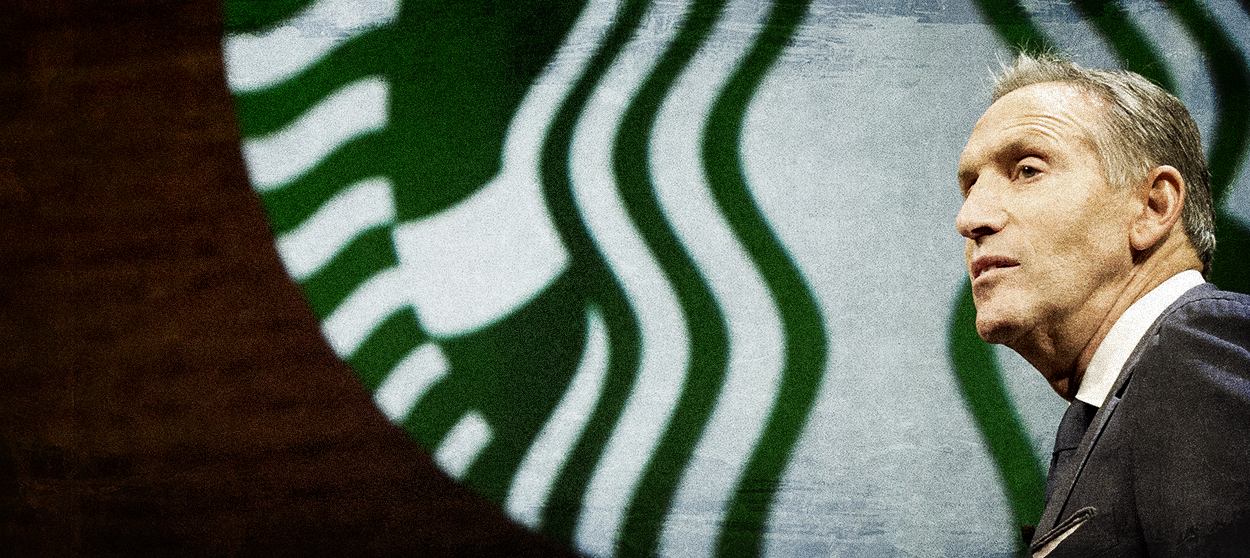How Howard Schultz could reveal the Democrats' inconvenient truth
Math doesn't have a liberal bias


A free daily email with the biggest news stories of the day – and the best features from TheWeek.com
You are now subscribed
Your newsletter sign-up was successful
Democrats are right to dread a Howard Schultz independent White House run. Unlike President Trump, the former Starbucks boss could credibly criticize their nominee for offering sketchy economic policy plans that ignore obvious potential costs and trade-offs. Of course, it would be even better if potential nominees such as Kamala Harris and Elizabeth Warren simply heeded smart economists in their own party who are trying to gently give them — as well as Democratic voters — a similar message.
Certainly Democrats don't need a bad-faith lecture from Trumpublicans on their responsibility to offer economically sound, fiscally responsible policy proposals. Not only did Candidate Trump vow to build a megawall paid for by Mexico, he also promised a trade war that would sharply reduce trade deficits with China, as well as a simply ridiculous $12 trillion tax cut that would double U.S. economic growth — if not more — and pay for itself. Of course, Mexico is not paying for the wall, America's trade deficit with China is at record levels, and even the much-smaller tax cut is adding to the federal debt. Not that many GOPers really seem to care much.
But as a super-successful businessman — unlike Donald Trump, this unquestionably legit billionaire created a great global public company — with a center-left bent, Schultz could make the plausible case that while he shares many liberal values, reality doesn't always have a liberal bias. Math doesn't wear a MAGA hat and isn't a member of the #Resistance.
The Week
Escape your echo chamber. Get the facts behind the news, plus analysis from multiple perspectives.

Sign up for The Week's Free Newsletters
From our morning news briefing to a weekly Good News Newsletter, get the best of The Week delivered directly to your inbox.
From our morning news briefing to a weekly Good News Newsletter, get the best of The Week delivered directly to your inbox.
And right now, Democrats have big math problems with many of their big-think progressive ideas. Kamala Harris, for instance, has endorsed pricey plans such as "Medicare-for-all" and a "Green New Deal," while also proposing a massive middle-class tax cut. That's positively Trumpian. While Harris has not specified how she might pay for her ideas, she may well come down where many other Democrats already are: soak the rich. Either that, or she can embrace the left's novel version of the GOP's supply-side economics: "modern monetary theory," which strongly downplays the potential downside of debt.
Now it's one thing for the chronically fact-challenged Trump to mock Democratic ideas, quite another for Schultz, who is far more likely to make a tighter, Pinocchio-free argument. He might point out that if Democrats really want to greatly increase government spending, taxing the rich and corporations alone won't get it done. Do Democrats really think sharply higher tax rates would have zero impact on economic growth at a time when the American economy faces a historical downshift in its growth potential?
Take Elizabeth Warren's seemingly modest 2 percent wealth tax. It's economically equivalent to a 67 percent income tax rate. Is there really minimal risk that such a savings-draining tax wouldn't eventually hurt business investment? Democrats sure seem to be suggesting just that.
Schultz might even point out that some top Democratic economists agree with his concerns. In a new Foreign Affairs essay, Jason Furman and former Treasury Secretary Lawrence Summers, both of whom worked in the Obama White House, seemingly give a green light to Democrats who want to crank up spending. They urge that "politicians and policymakers should focus on urgent social problems, not deficits."
A free daily email with the biggest news stories of the day – and the best features from TheWeek.com
But Furman and Summers, hardly deficit scolds, add that Washington can't forever ignore a rising federal debt-to-GDP ratio. Sorry, radical MMTers. At some point — likely signaled by financial markets — higher taxes will be necessary, and not just on uber-rich folks like Schultz or companies like Starbucks. "Ultimately, all Americans will have to pay a little more to support the kind of society they say they want," they write. It's a fiscal truth many populist-sounding Democrats aren't conceding right now.
Democrats have built a self-image as America's reality-based political party. It's those crazy Republicans whose policy ideas have gone from aspirational to fantastical. But a Schultz candidacy might reveal the inconvenient truth that the left also suffers from a bad case of wishful thinking.
James Pethokoukis is the DeWitt Wallace Fellow at the American Enterprise Institute where he runs the AEIdeas blog. He has also written for The New York Times, National Review, Commentary, The Weekly Standard, and other places.
